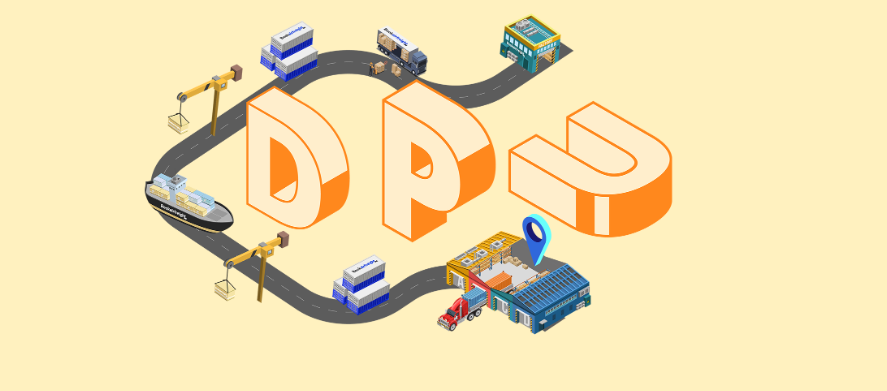What is DPU (Delivered At Place Unloaded)?
Posted on: 23/10/2024

Here’s a detailed explanation of DPU (Delivered at Place Unloaded):
1. Seller’s Responsibilities
In DPU, the seller takes on several key responsibilities:
Transportation to the Agreed Location: The seller arranges and pays for the transportation of goods to the agreed destination. This includes all logistical arrangements such as packing, transportation, and delivery.
Unloading the Goods: Unlike most other Incoterms, under DPU, the seller must also unload the goods once they arrive at the destination. This responsibility and cost fall on the seller.
Bearing the Risk Until Unloading: The seller bears all risks of loss or damage to the goods during transportation and until the goods are unloaded at the designated location. This means the seller is fully responsible for the goods up to the point of unloading.
Export Customs Clearance: The seller is responsible for handling all export formalities, including obtaining necessary licenses, paying export duties, and ensuring compliance with export regulations in the country of origin.
2. Buyer’s Responsibilities
The buyer also has several responsibilities under DPU:
Import Customs Clearance: The buyer is responsible for customs clearance at the destination country. This includes paying any import duties, taxes, and completing all necessary documentation for the importation of goods.
Further Transportation (if needed): After the goods are unloaded, the buyer takes responsibility for moving the goods to their final location, if different from the delivery point.
Risk After Unloading: Once the goods are unloaded, the risk of any damage or loss transfers to the buyer. From that point, any further handling, damage, or issues with the goods are the buyer's responsibility.
3. Delivery and Transfer of Risk
a. Delivery at the Agreed Location
The seller’s delivery obligation is fulfilled once the goods have arrived at the agreed location and have been unloaded. This could be a warehouse, terminal, port, or any other location agreed upon between the buyer and seller.
b. Transfer of Risk
Risk transfers from the seller to the buyer once the goods have been successfully unloaded at the designated place. After unloading, any potential damage or risk to the goods is borne by the buyer.
4. Comparison with Other Incoterms
DPU vs. DAP (Delivered at Place):
Under DAP, the seller is responsible for delivering the goods to the destination but is not required to unload them. In DPU, the seller must also unload the goods, making it more comprehensive for the buyer in terms of delivery.
DPU vs. CIF (Cost, Insurance, and Freight):
CIF applies only to maritime shipping, where the seller pays for shipping and insurance to the port of destination, but the buyer handles the goods from there, including unloading. In contrast, DPU requires the seller to handle both transportation and unloading, offering a higher level of service.
DPU vs. EXW (Ex Works):
EXW places most of the responsibility on the buyer, where the buyer must arrange for the transport and bear all risks from the seller’s premises. DPU, on the other hand, requires the seller to handle transportation, risk, and unloading at the destination, greatly reducing the buyer's logistical burden.

5. Advantages of DPU
Full Delivery Service by the Seller: The seller manages everything, from export formalities to transportation, unloading, and ensuring the goods reach their destination safely. This is ideal for buyers who want to minimize logistical involvement.
Reduced Risk for the Buyer: The buyer only assumes the risk once the goods have been delivered and unloaded, providing more security for the buyer compared to other Incoterms.
Flexibility of Transport Modes: DPU can be used for any mode of transport, whether by sea, air, rail, or road, making it versatile for various types of shipments.
6. Real-World Example of DPU
A company in Germany buys electronic equipment from a supplier in South Korea under DPU terms, with delivery to a warehouse in Munich. The South Korean seller arranges and pays for the transportation of the equipment from its factory in South Korea to Munich, including unloading at the warehouse. The seller bears all risks up to and including the unloading process. Once the goods are unloaded at the Munich warehouse, the German company is responsible for customs clearance and any further transport.
7. Conclusion
DPU (Delivered at Place Unloaded) is an Incoterm that provides the buyer with a comprehensive service, where the seller is responsible for delivering and unloading the goods at the agreed destination. It is especially beneficial for buyers who want to minimize their involvement in transportation and risk management until the goods are unloaded. The seller assumes the bulk of the responsibility, from export formalities to unloading the goods, making it a convenient and risk-reducing option for the buyer.